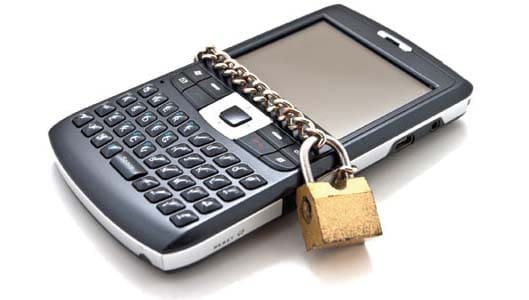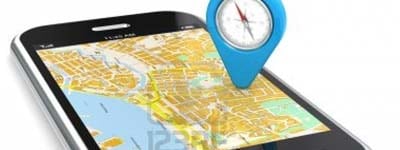7 tips for better security & privacy for smartphone users
We provide some tips on how to ensure your smartphone and the data stored on it is safe.
As smartphone Internet traffic continues to increase in popularity, Internet criminals are creating an increasingly growing range of scams specifically targeting this online demographic.
Ensuring your phone is safe is now just as important as protecting your PC. The average smartphone user will have their email accounts, social media accounts as well as a host of personal information stored on their phone, meaning it can be a privacy nightmare if it falls into the wrong hands.
So here are a few tips to make sure your phone remains crime-free.
1. Make use of the password/pin features
Phone manufacturs always provide a way of ensuring only authorised people can use the phone. Most commonly this is done via a password or PIN code to access the phone every time it locks. More modern phones provide other ways, like fingerprinting or a pattern code.
2. Don’t install untrusted apps
Applications designed to run on mobile devices – apps – are a potential window into your phone. Each time you install an app, you are potentially giving the people who developed the app access to data or features inside your phone that they shouldn’t have.
Thus it is important to always be confident that the people behind the app are trustworthy and won’t abuse your information. Always download apps from the official marketplace of your phone manufacturer (i.e. Google Play or the Apple Store) and don’t download apps from elsewhere.
Always check the app has a positive reception and check the apps permissions before downloading. Yes the permissions can often sound a little more daunting than they really are but you still should know what the app can and cannot do.
Also, poorly designed apps can give criminals a way to access your phone, regardless of the intentions of the app developer.
3. Use reputable GPS tracking and remote wipe facilities
There are a plethora of good services available for almost every mainstream phone manufacturer that allows a user to track lost or stolen phones via GPS technology and even wipe the data off the phone if you believe it was stolen.
This ensures you always have control over who sees the information on your phone, even if you don’t have it.
4. Treat your smartphone like your PC
Malware designed to attack your phone is on the increase, and the range of methods in which they infect your phone are largely the same as they can infect your PC. Two common methods is via malware-infested websites and through email attachments.
Thus performing the same cautionary techniques on your phone as you would your home computer or laptop is essential. Don’t go onto untrusted websites – don’t download untrusted files from the Internet – don’t open suspicious email attachments – and certainly don’t install suspicious apps.
5. Take particularly sensitive information OFF your phone
If you’re anything like the average phone user then you’ll more than likely take your phone with you most places you go. Like it or not that makes your phone more vulnerable to theft than your home computer. You can easily leave your phone behind somewhere, or have it stolen from you.
This in turn can make the data on your phone more vulnerable too. We always recommend regularly scanning the information on your phone and backing up anything sensitive you don’t need on the phone to somewhere safer – your home computer for example.
6. Don’t perform sensitive tasks on public Wi-Fi or unsecured networks
Just as with laptops or Internet cafes, you should avoid performing sensitive tasks, such as online banking, on public Wi-Fi. Snooping software can intercept information sent to and from your phone on such networks that can result in your data being stolen.
7. Use social media responsibly
Social websites like Facebook, Twitter and Instagram have all flocked to the online mobile user, luring them into sharing information “on the go”.
But just because they make it as easy and convenient as possible to post this sort of information, it doesn’t mean you should be posting every little detail of your life online, as this can have dire consequences for your privacy.
For example posting a picture of your house from the rear view mirror as you make your way to the airport for your summer holiday can tell a stranger not only where you live, but that your house will be empty!
On that same note, ensure your privacy settings for all your social media accounts is appropriate. Facebook accounts should always be locked down. Twitter accounts where the tweets can be viewed by anyone should not contain any personal information.
Keep up-to-date with all our latest articles. Follow us on Facebook, Instagram and Twitter.
Continued below...
Thanks for reading! But before you go… as part of our latest series of articles on how to earn a little extra cash using the Internet (without getting scammed) we have been looking into how you can earn gift vouchers (like Amazon vouchers) using reward-per-action websites such as SwagBucks. If you are interested we even have our own sign-up code to get you started. Want to learn more? We discuss it here. (Or you can just sign-up here and use code Nonsense70SB when registering.)
Become a Facebook Supporter. For 0.99p (~$1.30) a month you can become a Facebook fan, meaning you get an optional Supporter Badge when you comment on our Facebook posts, as well as discounts on our merchandise. You can subscribe here (cancel anytime.)




